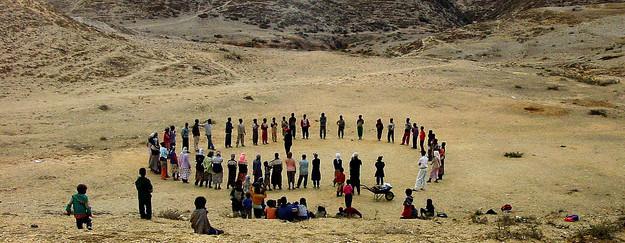Human Security Report: A Major Blow to Humanitarian Accountability
I was sorry to see the Human Security Report (HSR) released today. I was sorry because this report draws unjustified conclusions and will leave the world more ignorant and misguided for its release. There are four very weak aspects of this report that led to this opening line which I find most problematic, “this report reveals that nationwide mortality rates actually fall during most wars”:
1) This and many other conclusions are solely a function of the low threshold chosen to define “war,” considering it to be ongoing with just 25 killings per year. If war was instead defined as occurring in a population where 0.1% was violently killed in a year, I strongly suspect almost all of the HSR conclusions would reverse. This definition would be closer to the public image of war and to where humanitarian aid dollars flow.
2) The report is rife with profound inconsistencies of logic. Moreover, the report completely contradicts a main theme of the last Human Security Report (“War-related diseases kill and disable far more people than bombs and bullets”). The conclusions about giving up on surveys to directly measure war-time excess deaths contradicts the conclusion from the meeting you hosted in March, 2004 with a collection of highly regarded experts including: Jennifer Leaning, Debbi Sapir, and Richard Garfield. Some of the more egregious internal inconsistencies are listed in Appendix B (Appendices available here: Appendices to Les Roberts Critique of HSR).
3) The report is unscholarly, not fully exploring sources, citing one source for one point and ignoring that source elsewhere. It was particularly selective to cite Chris Murray’s 2002 BMJ article as “much-cited” but not the follow-up 2008 BMJ article with Ziad Obermeyer which shows that the PIRO dataset on which the HSR is largely based, misses most deaths. A list of serious inconsistencies or errors is included as Appendix C.
4) The HSR claims war does not stop the usual mortality decline seen in most poor nations, but then does not study or report on those people affected at the times of war. The report looks at entire nations where you admit a tiny fraction of people are affected for a tiny fraction of the study period and draw conclusions with data so crude and general as to be meaningless. The report uses national, time-smoothed data… without the appropriate confidence intervals… to detect the effects of armed conflict. For those of us who were in Rwanda in 1994 and saw those thousands of child bodies dumped in the mass graves, the idea presented in the HSR that 1995 and 1996 were less healthy for children than 1994 is incomprehensible.
As a contributor to the last Human Security Report, I was sorry to see this report. As one of the main forces of accountability in humanitarian assistance, the Canadian Government should be mortified by this report and its, perhaps inadvertent, assault on SMART and relief accountability. As a scientist, I am disheartened to see all this money spent on the HSR to make the academic community more fractious. Many years ago we went out and attempted to report to the world about an unfolding crisis in the Congo. We did it carefully, but as we described at the time, crudely, at great risk to life and limb, and at only a few percent of the cost of this Human Security Report. It is unbecoming to grab a headline a decade after by tearing down a study with erroneous speculation. If the HSR wants to advance this field, there are apparently under-reported crises underway in Somalia and Northern CAR; go there and do better.






